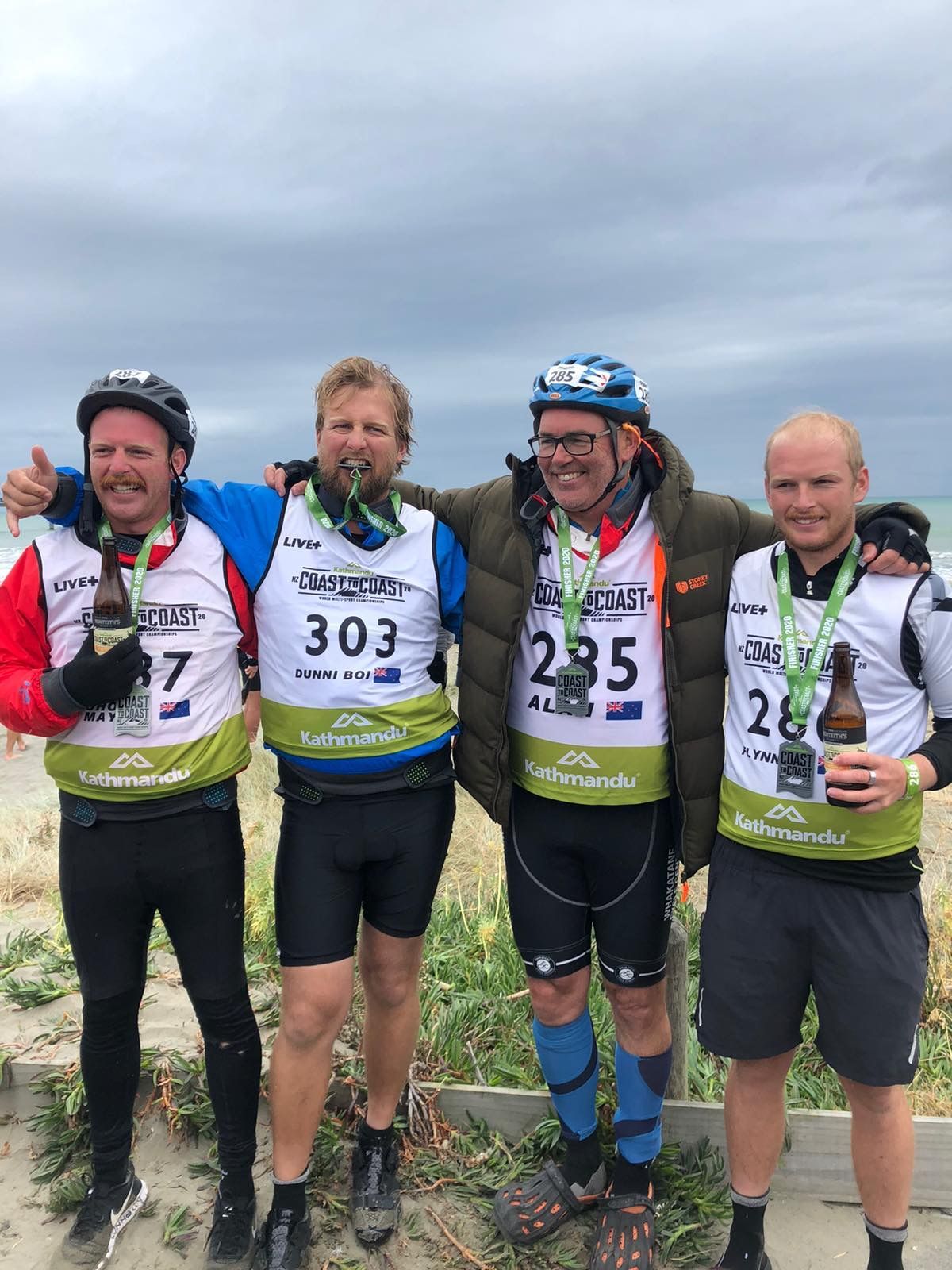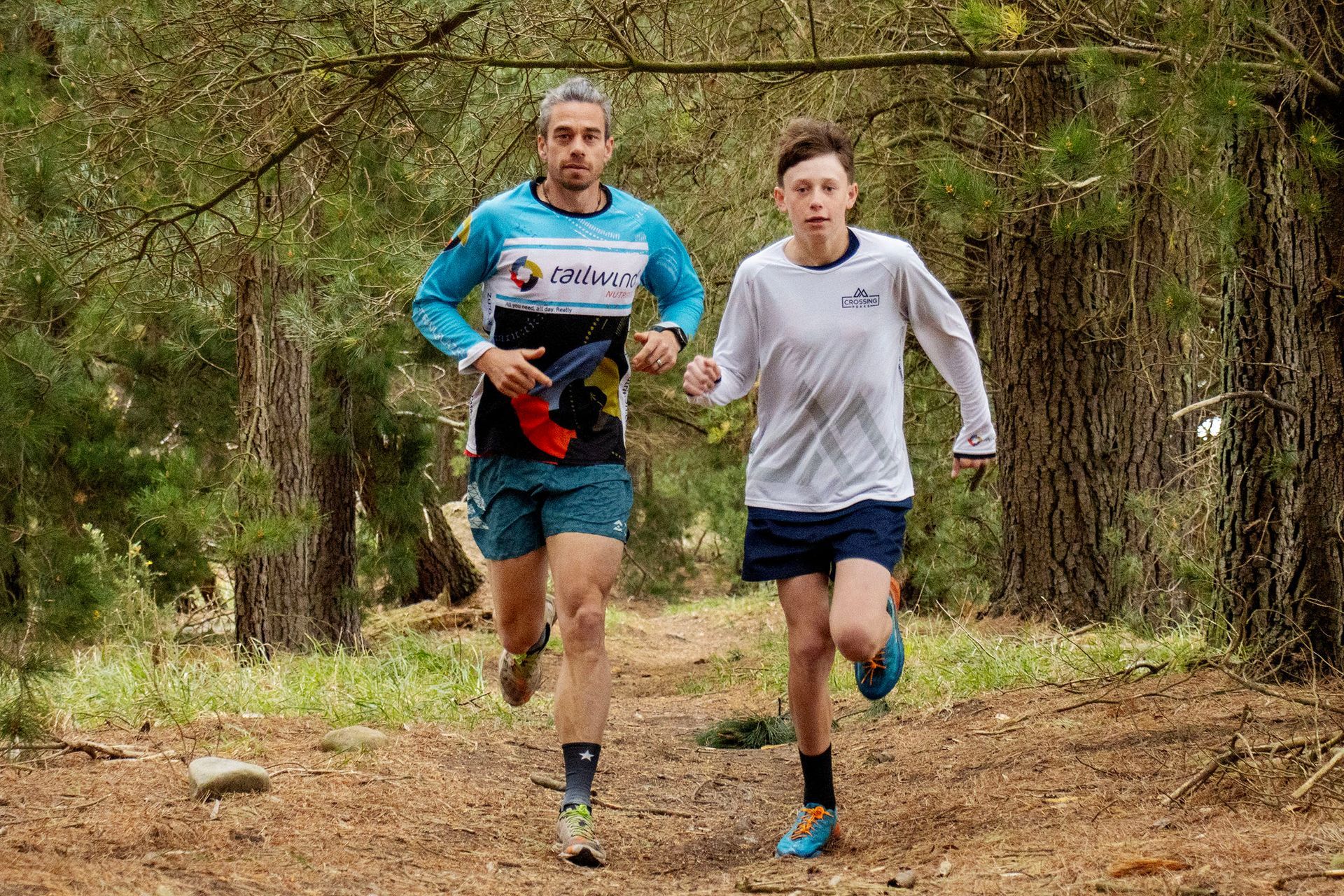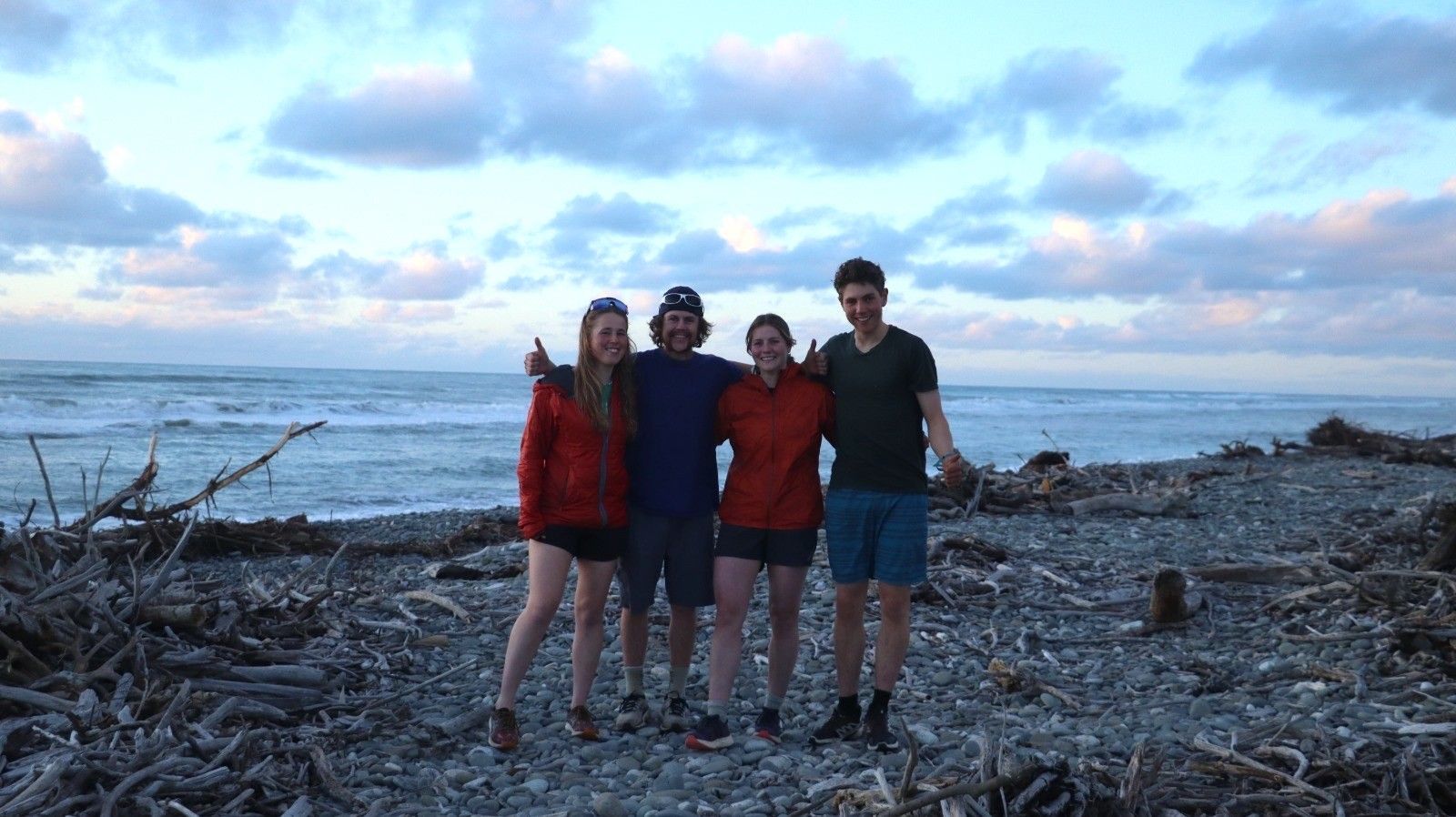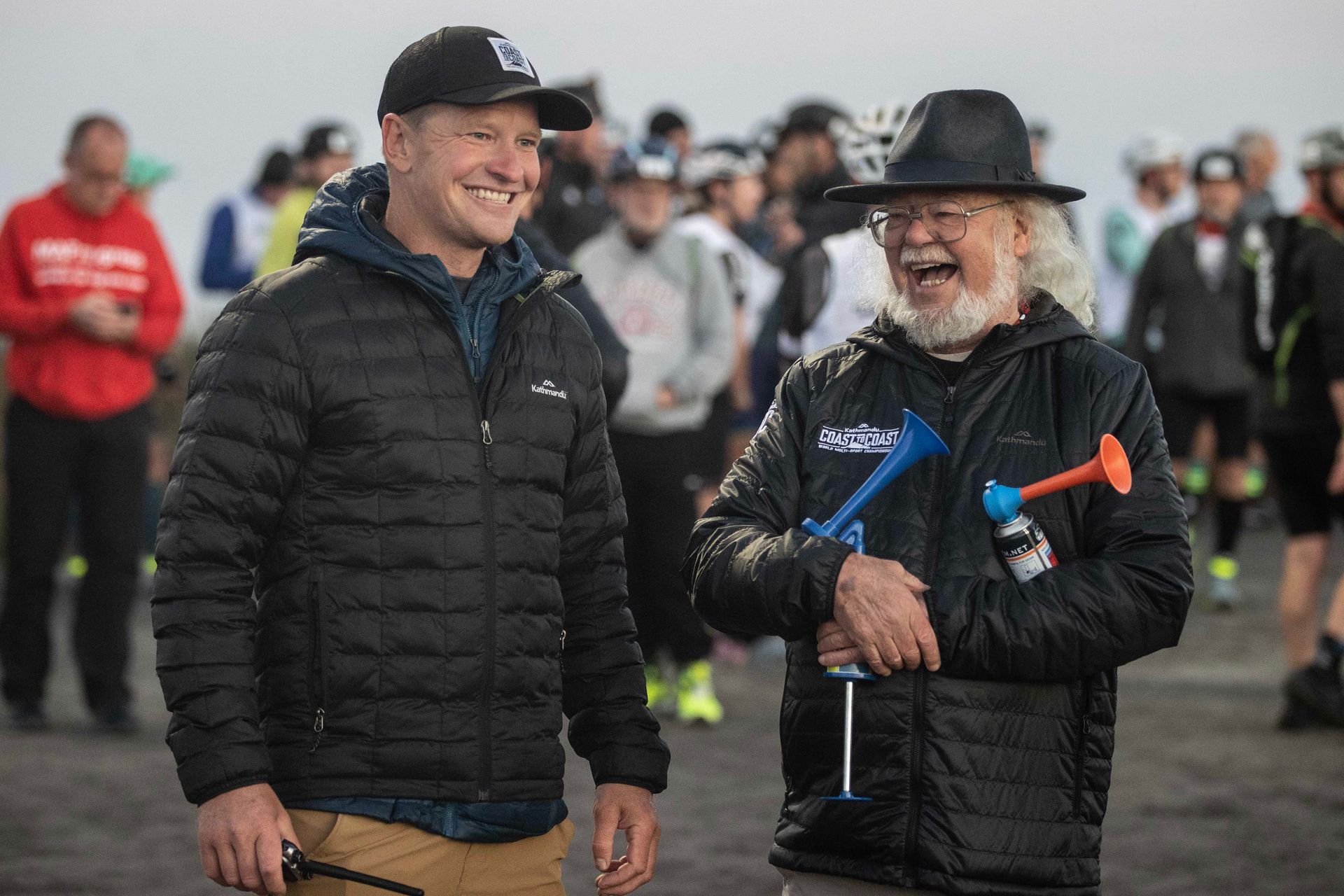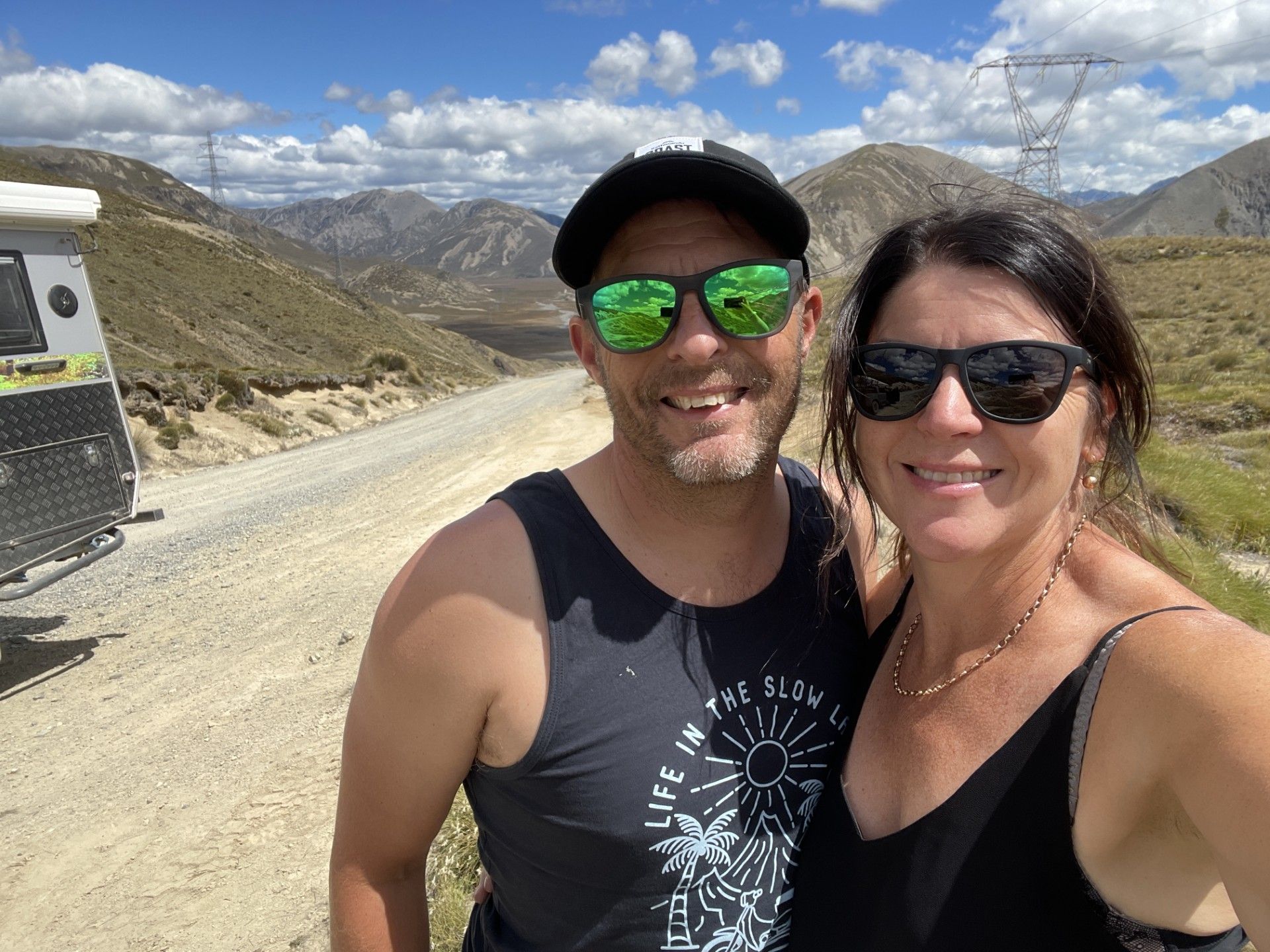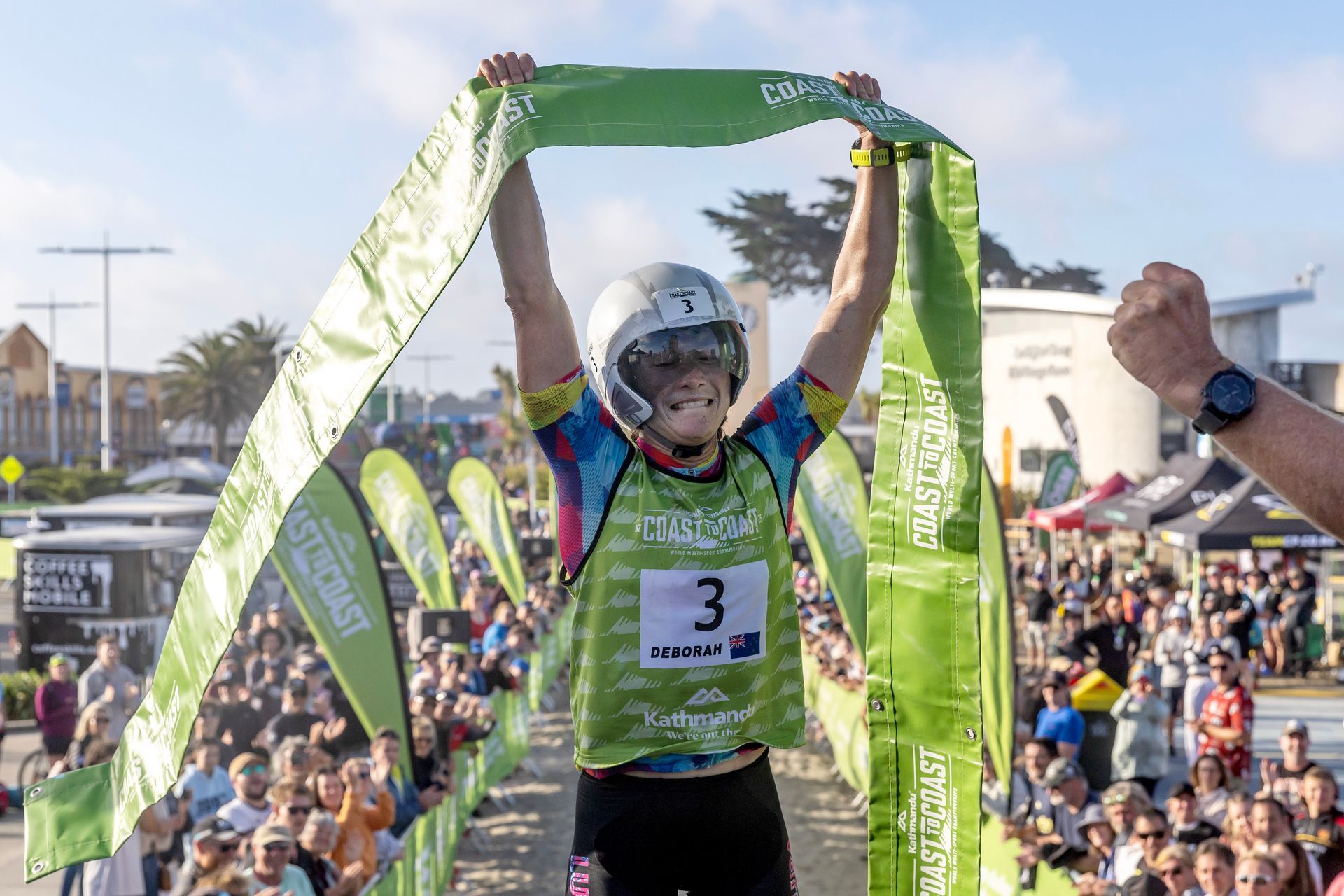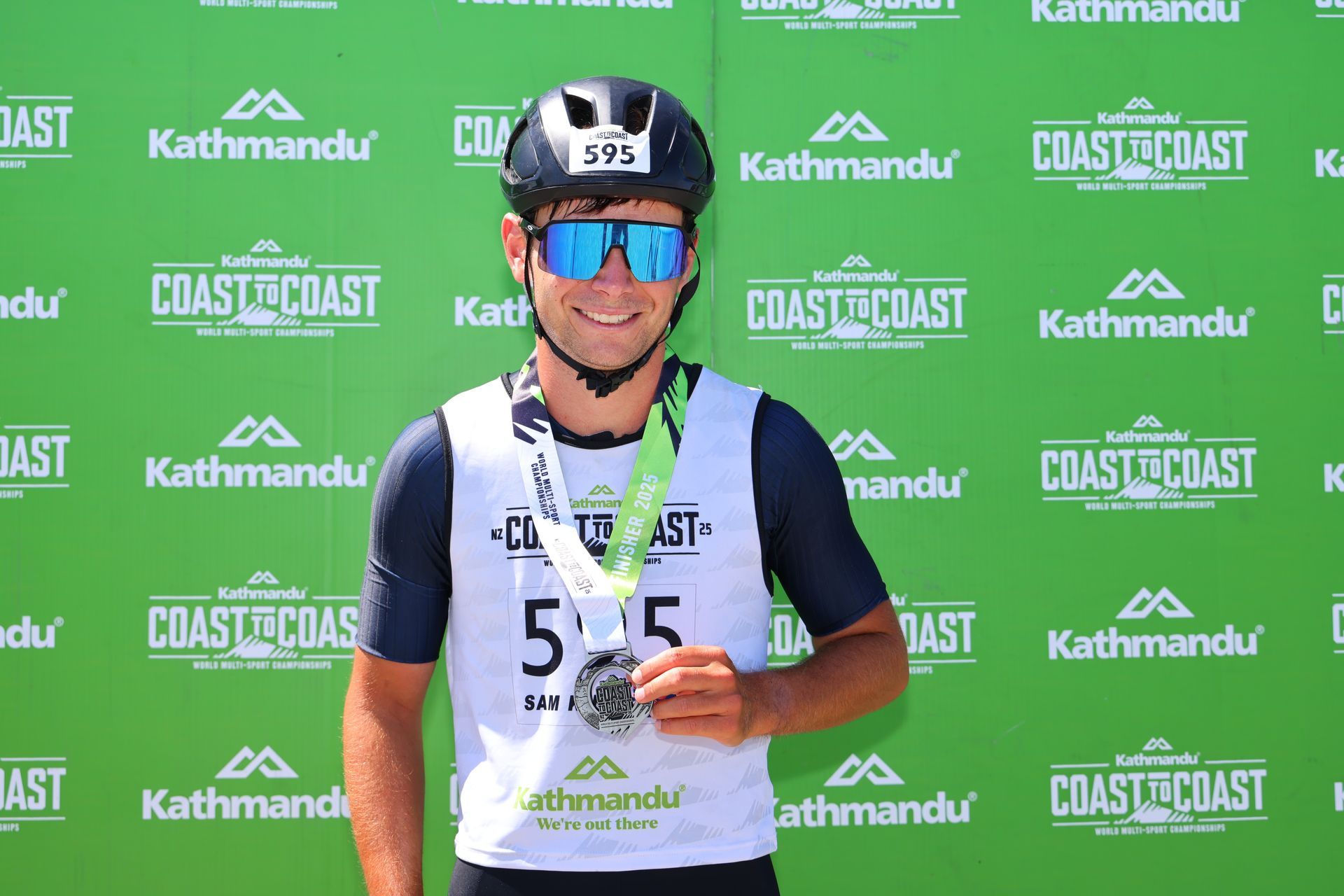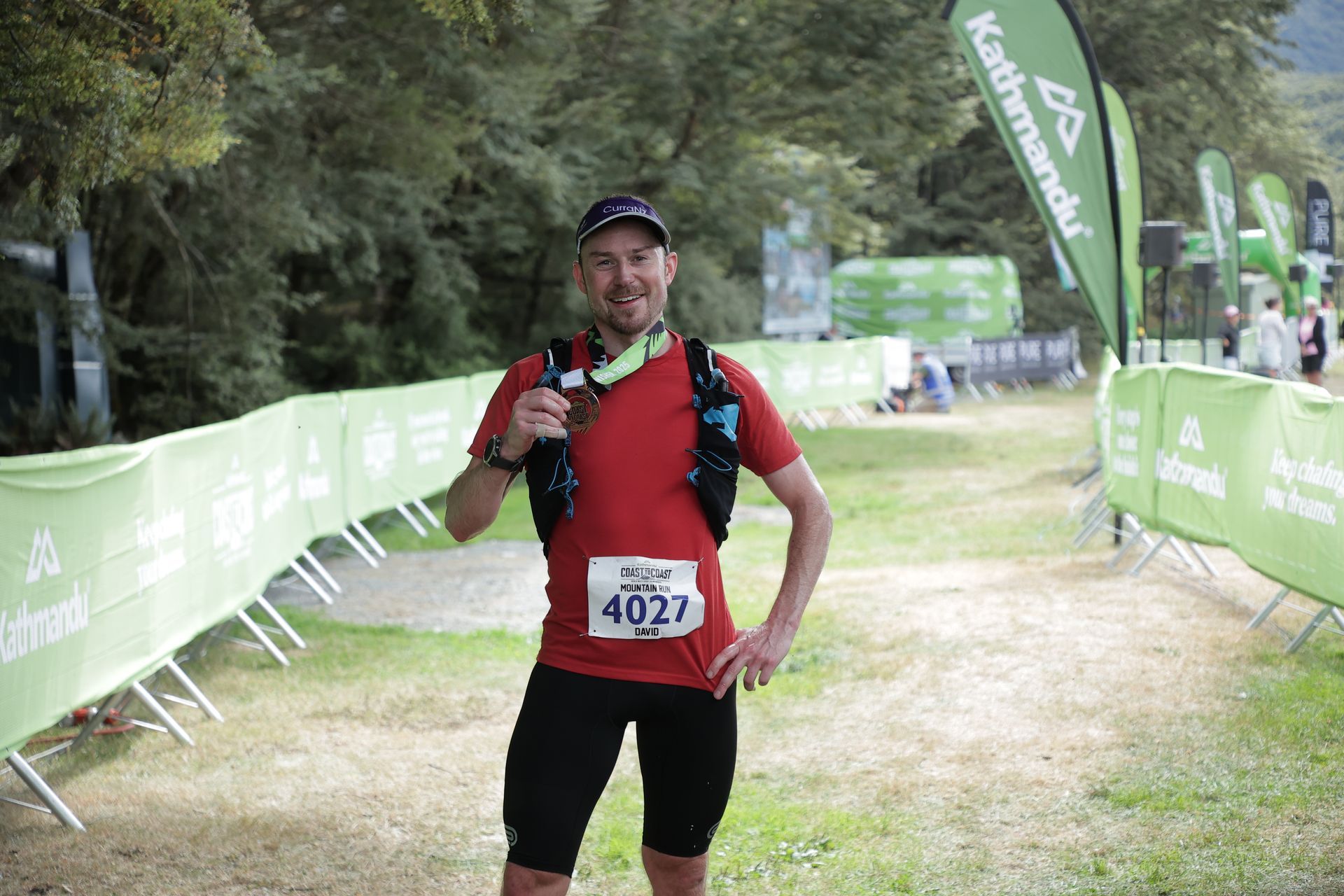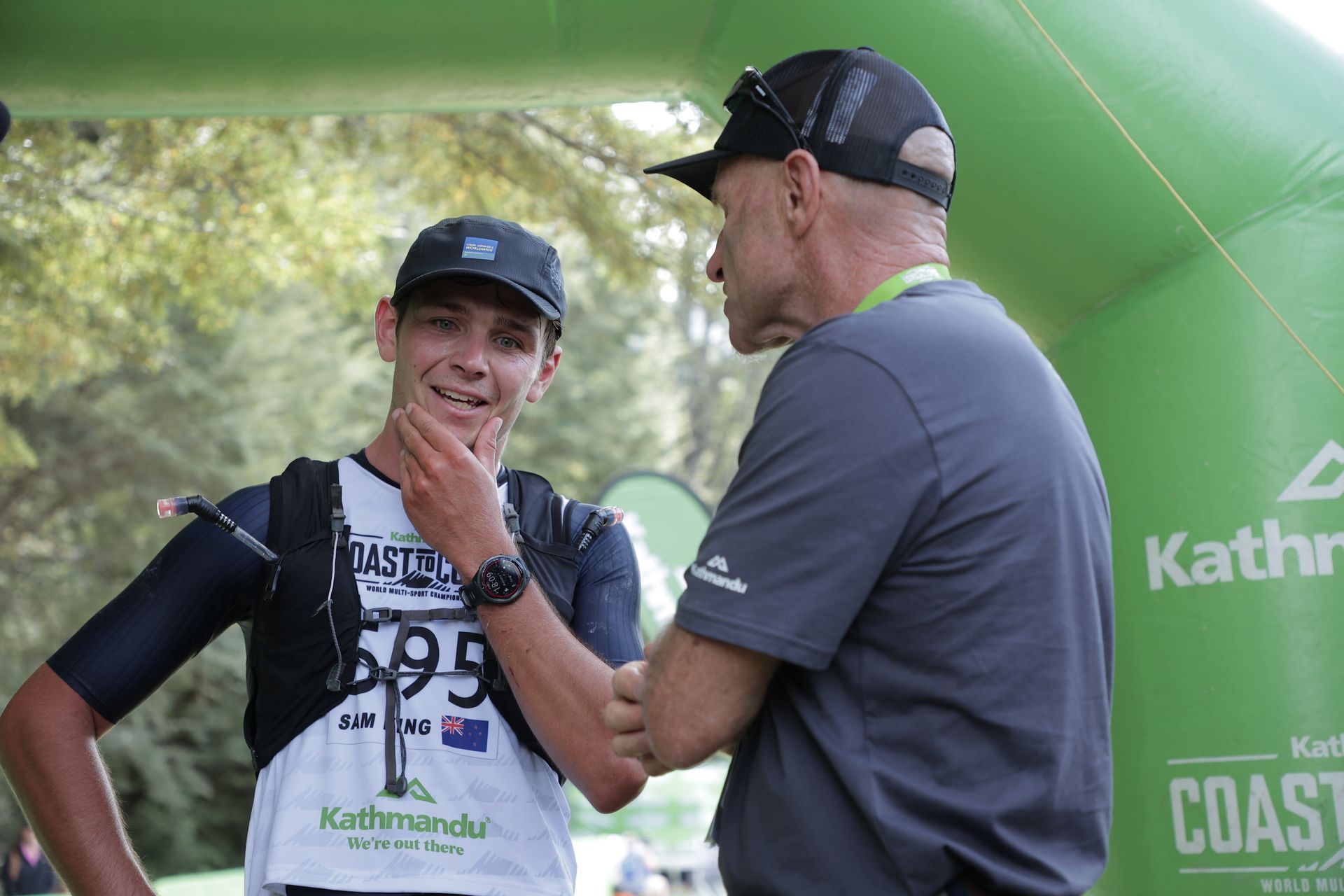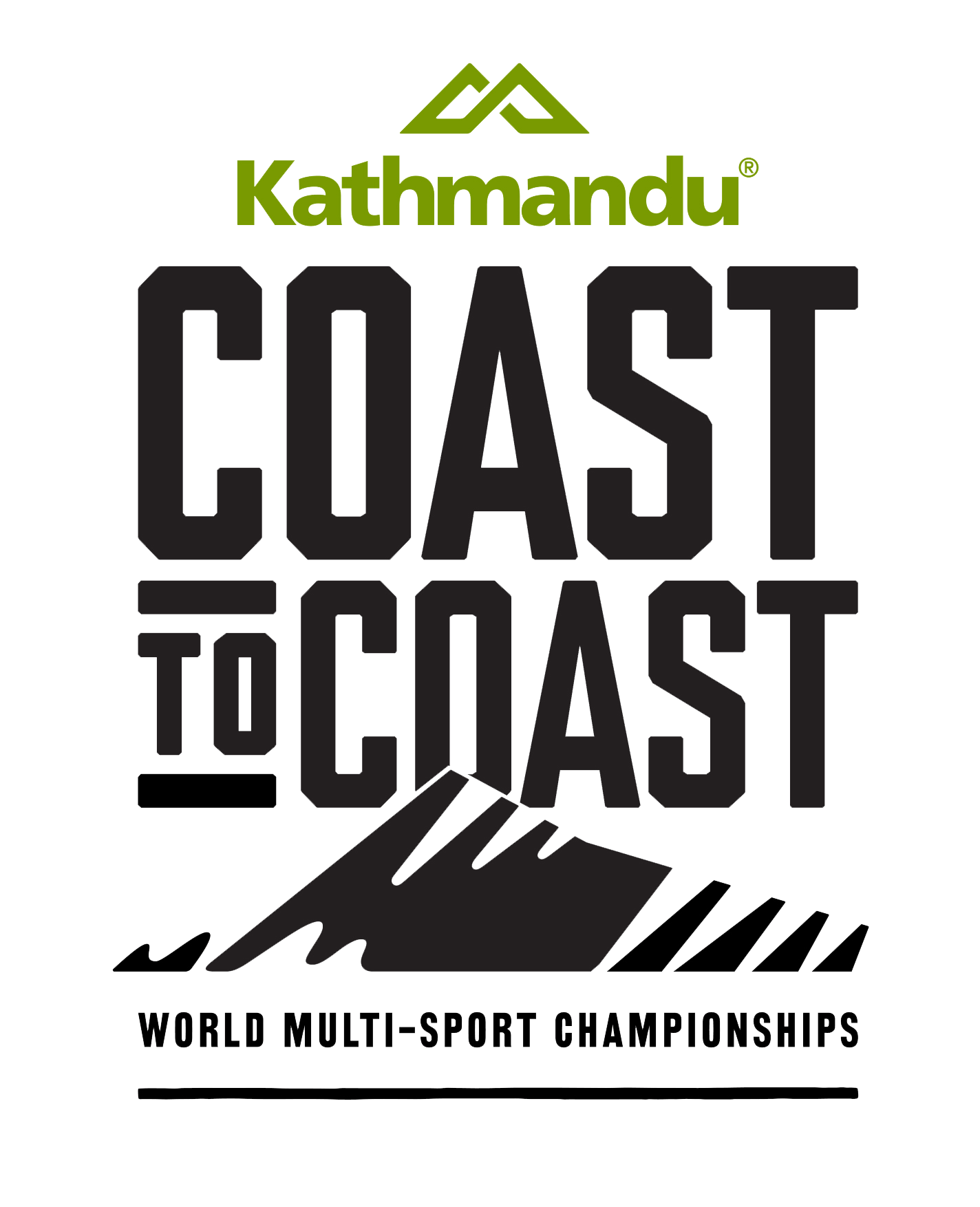Testing her own resilience
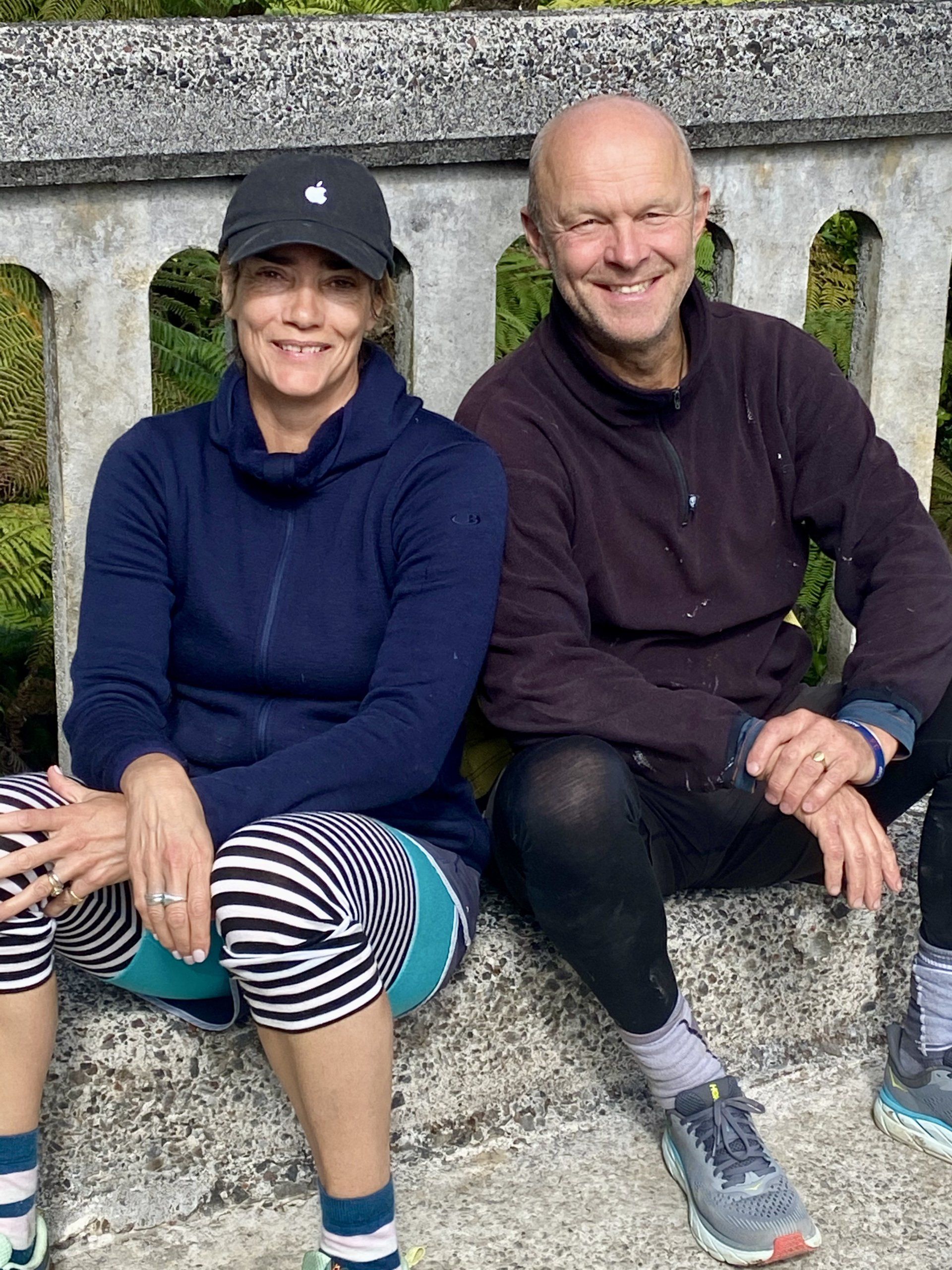
Next year Dr Lucy Hone will tackle something that has been on her radar for more than a decade.
The Kathmandu Coast to Coast.
Known for her work building resilience in schools and workplaces, the co-founder of the New Zealand Institute of Wellbeing and Resilience and an adjunct senior fellow at the University of Canterbury, says she looks at any challenge she takes on through a psychological lens. And the Coast to Coast is no different.
“It’s something I’ve thought about doing but has always felt beyond me. When the kids lived at home, time was a big barrier, I didn’t have enough time to work and train. And I was terrified of Goat Pass - I’ve done a lot of running over the years but I’m not comfortable climbing over boulders and I wasn’t sure I’d be able to get down that riverbed.”
The inspiration and belief to give it a go came from a discussion with another member of her gym, Koha Fitness, in Christchurch. “She had completed the event and told me it took her two years to train. She recommended I meet with Richard Greer from Team CP who had helped her. The other thing which helped me decide to do it was discovering we could do it in tandem. I persuaded my husband to do it with me, I knew that with him by my side I could somehow get through it.”
“Then we met with Richard and he broke it down for us, telling us that Goat Pass is walkable in 8 hours and the cut off is 11 hours. So, even in the worst-case scenario and we had to walk it, we would still complete it in time.”
Hone has been researching resilience for well over a decade now, starting initially at the University of Pennsylvania in Philadelphia, which in 2009 was the only place in the world she could study the field. There she learnt from the best of the best, among them the professors responsible for teaching the USA Military to be as mentally fit as they were physically fit.
Returning home to Christchurch, she put her doctoral research on hold during the post-quake period, turning her attention to support her home community – working with government departments and all sort of organisations teaching them the mental skills that science shows boost community and individual resilience.
Then, three years later, on Queens Birthday weekend, her own resilience was tested in the extreme, when her 12-year-old daughter Abi and friends were killed instantly when a driver sped through a stop sign and crashed into their car.
Knowing and trusting the science and the research, but not really knowing if it would work in the wake of such a tragic personal loss, Hone began to write a blog testing the tools of resilience throughout the weeks and months after Abi’s death. The blog went viral, resulting in a book deal and publication of the best-selling Resilient Grieving.
More than seven years on from the tragedy, Hone says she knows from the research and her own experience, the importance of understanding the ways of thinking and acting that help each of us navigate adversity. Thinking tools that she’s now spread out to the world, thanks to the huge success of her TED talk, 3 Secrets of Resilient People, which went viral during the Covid pandemic, making it NZ’s most watched TED talk and ranking in the top 20 of TED’s talks in 2020.
Hone says without a doubt her work gives her a mental advantage when it comes to taking on big challenges like the Coast to Coast, but when it comes to the physicality, she says she’s feeling her age and is no doubt of the size of the mission ahead of her. “I can overcome the mind games. I have that self-belief which I can draw on from past experiences. I’ve done the London Marathon, half marathons and the Grape Ride, but I need to put things in place to overcome the physical side, I’ve got a very busy start up business and my body’s not feeling as good as it used to. I’m tired all the time from training and it’s a juggle to keep progressing but allow time for recovery too. Plus we’ve never white-water kayaked before, so that’s a really steep learning curve. I don’t think I’ve ever been as scared as I was that first weekend on the white-water but we’ve practiced lots on the Estuary and each week it gets a bit better. “My husband has some injuries at the moment so we’re just taking it a week at a time, following Richard’s training schedule with two bike rides, three runs and a kayak a week and trusting that’s enough to get us there. We catch up with Richard regularly too.”
There is one strong piece of advice Hone has for anyone contemplating a big challenge like the Coast to Coast.
“Work out your motivation – you’ve got to be really clear on your ‘why’ first up. Then write a list of what we call barrier’s and enablers in psychology – all the things you are worried about, the hurdles you need to overcome, the things stopping you from saying yes or that get in the way of your ability to train; then work out ways to overcome these, break the big ones down to make them achievable, find workable solutions and get help where you need it.”
That’s why, on summer afternoons, she hopes you’ll be able to find her, out on the beach in Sumner, climbing over those big boulders, learning to trust her footwork, getting better at it - one rock at a time.

